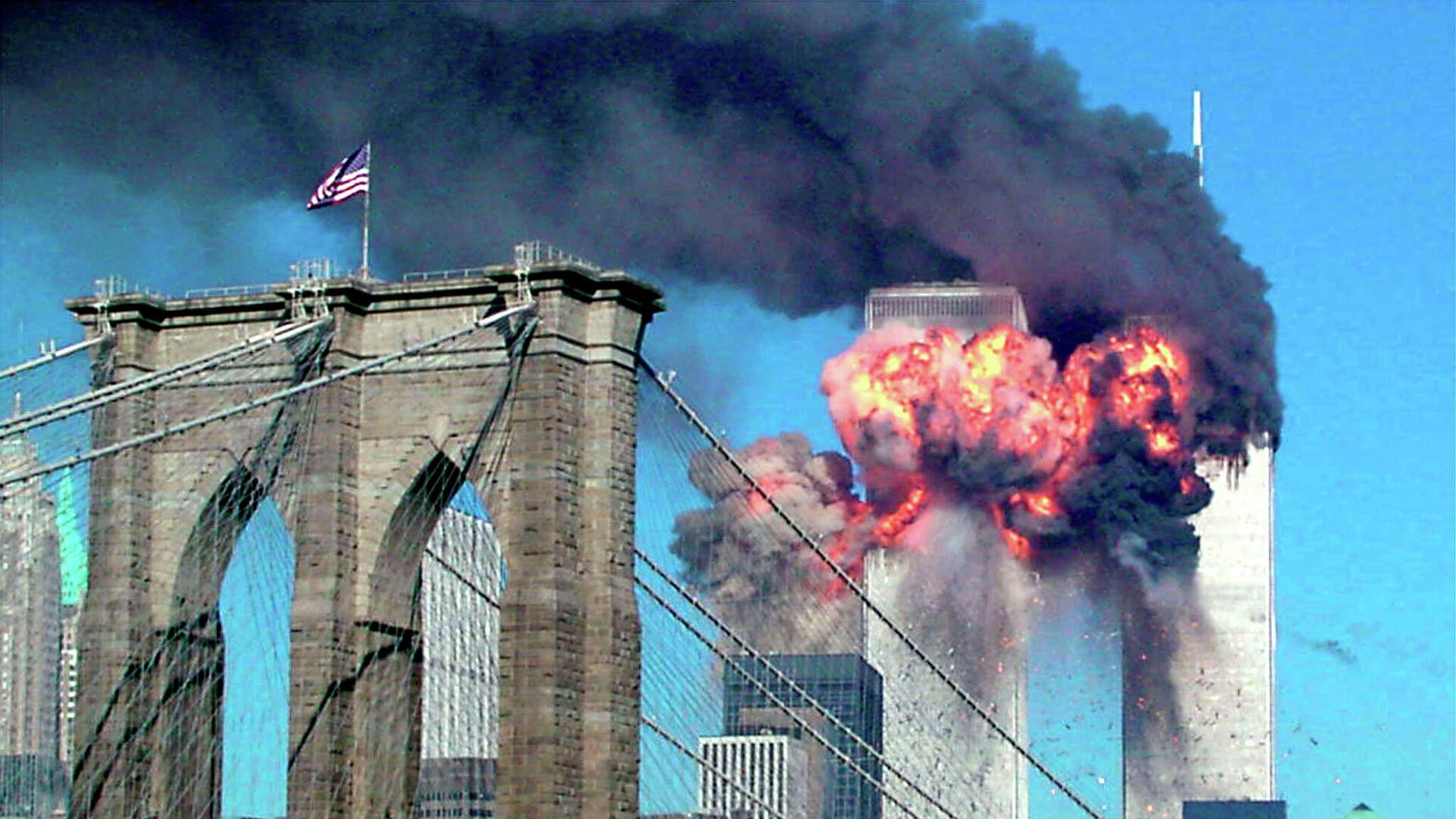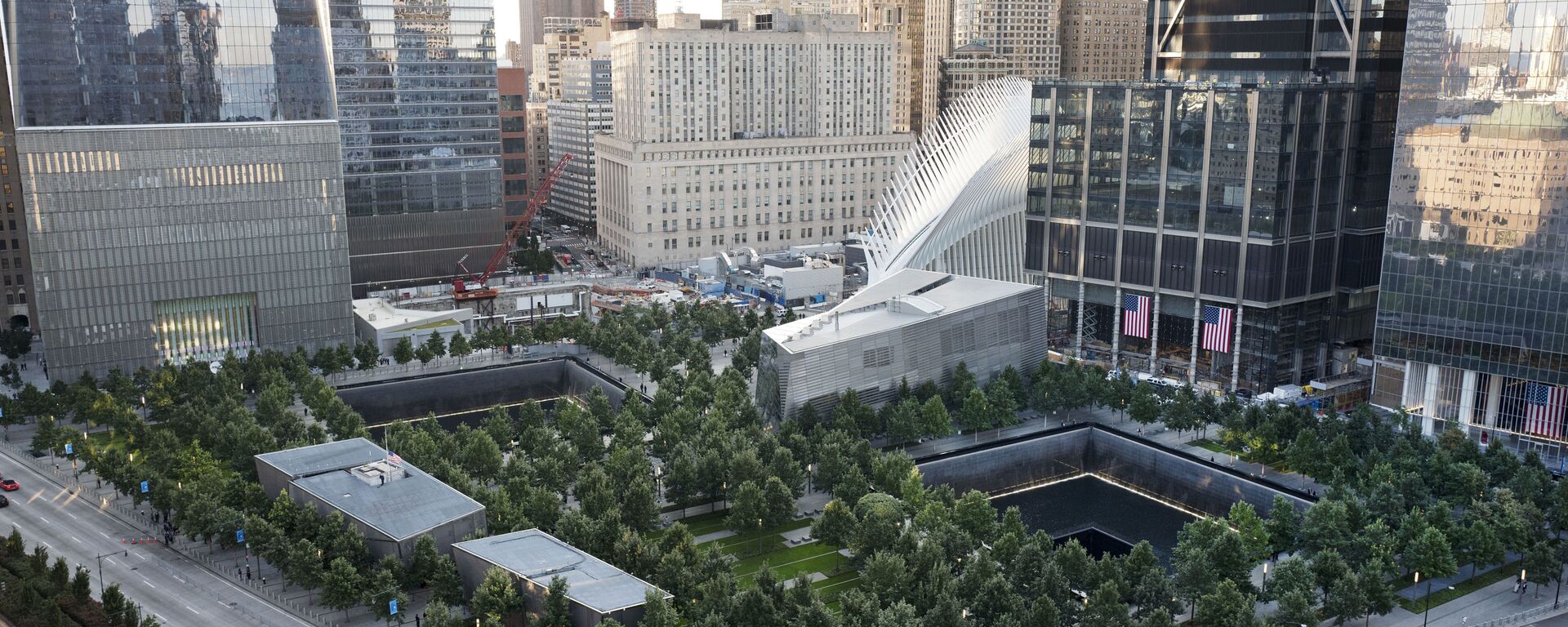20 Years Later, ‘I Don’t Think Anybody Has Been the Same’: 9/11 Survivor Recounts the Harrowing Day
00:32 GMT 10.09.2021 (Updated: 21:07 GMT 19.10.2022)

© REUTERS / STRINGER / FILE PHOTO: 20th anniversary of the September 11 attacks
Subscribe
The September 11th terrorist attacks scarred a nation. 20 years later, this is Marc Fiedler’s story. A man who “had a perfect view” of the attacks, in his own words, recounts the day that changed him and America forever.
September 11th, 2001 started just like any other day for Marc Fiedler.
The suffering through the inhumanity of train passengers. The grumbling over his office relocating from the area surrounding the World Trade Center to Jersey City. The anguishing move subjected him every time he looked out from his office in Jersey City, across the waters of the Hudson River, and peered into New York. In other words, it was just another Tuesday.
Marc and his colleagues at Merrill Lynch went bustling about their mornings. Their view into New York remained an afterthought. Work had to be done and staring out the window was no way to be productive. If one looked up at the wall of television monitors, they would have seen that it was 8:45 in the morning. It was the last minute before everything changed for Marc Fiedler, a city, and a nation.
“We heard a very loud crash.” What was just another Tuesday morning was suddenly shattered by the sound of a Boeing 767 crashing into the North Tower of the World Trade Center. In an instant, Marc Fiedler and his coworkers’ attention was drawn to the window, out across the Hudson River, and into Manhattan as they stared at smoke rising from World Trade Center. No one knew what had really happened, or what was about to transpire.
“There were people that were saying, ‘Oh, it was some pilot who accidentally crashed his plane into the building, but then we started thinking a pilot would try to land in the Hudson River before he would crash into one the buildings.”
The smoking North Tower cast a disturbing enchantment over the whole office. Unable to look away, “we saw the second plane coming into the second tower live.” In an instant, everything changed. Their curiosity, gone. Their questions, answered. What they witnessed was an attack. All they knew was that it was time to go.
The trains from Jersey City to Hoboken weren’t running and cell phones weren’t working. All Marc could rely on were his own two feet and the murmur of a radio to guide him. As he made the two-mile trek from his office on Greene Street to the Hoboken train station, he kept an eye back on the World Trade Center.
“It got real cloudy, smokey, really couldn’t see much anymore because of the debris. The thought was, those buildings are some of the strongest and biggest in the world. They’ll still be there tomorrow, was the thought. And then all of a sudden the guy on the radio started saying how people are jumping out of the building and it was just mayhem.”
As the towers crumbled, debris rained down. The impact from the planes had set off a deadly chain reaction. The weight of each floor above the impact zone was slowly accumulating. The World Trade Center hadn’t just been attacked, it had been weaponized. It was a structural ticking time bomb.
Most ran as fast and far from the site as they could, but first responders, unknowing of the dangerous trap they had entered, rushed to it. Those above the impact zones had been trapped. There was no escape. There was no rescue. An estimated 200 people jumped, mixed in with the debris, to their death. As the World Trade Center crumbled and the scene descended into chaos, goodness still shone through.
Even as Marc tried to remain optimistic through all the chaos, everyone seemed to have grasped that things had changed. People were civil at the train station. No one complained about the delays. A somber air permeated the car as Marc rode the train home. There was a collective understanding that everyone was in mourning.
A radio kept him up to date on the events. He was left in disbelief when he heard that the first tower had come crashing down.
“I mean, how could that giant building come down because of one airplane almost near the top,” he asked himself. Just as he had done before, he tried to remain optimistic. One tower had fallen, but the other remained. For 30 minutes, the second tower held on, giving Marc and the nation the hope that all was not lost. “Then the second tower fell. And I don’t think anybody has been the same since.”

8 September 2021, 17:18 GMT
Marc had more than just witnessed the most pivotal moment of the 21st century in American history, he had felt it, he had lived it, and it made him think. It made him think about how the people on the trains had been cordial. It made him think about how “the building we left a month before got crushed with the debris.” It made him think about his nephew, who worked near Ground Zero, “covered in soot, in a daze, walking across the George Washington Bridge.” It made him think about “all the firefighters and police officers who died helping people.” It made him think that nothing will ever be the same.
September 11th, 2001 wasn’t just any other day. It left a lasting impact on an entire country. However, the people that were there that day in New York and the surrounding areas bore the brunt of the tragedy. They never had the option of turning off the television. They had to live it. Loved ones died on that day. Loved ones suffered, and continue to suffer.
Marc Fiedler didn’t suffer any physical wounds from 9-11, but the horrors he witnessed will never fully fade. September 11th, 2001 wasn’t just any other day, and it never will be again.



